Commercial kitchens require professional deep cleaning to meet a high standard of cleanliness, which is crucial for those who work in restaurants and those who come to dine there. Possible contamination, fire, and health hazards are the foremost concerns of commercial kitchen workers and restaurant managers.
The safety of employees and guests is always a priority, so you must follow proper procedures. When it comes to maintaining your restaurant kitchen, one particularly problematic area is often the kitchen hood vent and exhaust systems. At minimum, it may cause you to fail inspection, get shut down or system repair costs, but at worst, it can become a serious fire hazard if not properly and regularly cleaned costing you everything due to fire. This article will discuss why your restaurant hood cleaning needs to be done frequently, accurately and who to hire for that specific job
The principle behind the commercial kitchen ventilation system.
To understand the importance of proper restaurant hood cleaning, you must first understand kitchen ventilation principles. Regardless of the size and design of a restaurant kitchen, they all have the same science behind ventilation. Contaminated air gets exhausted out of the space and replaced with an intake of clean and fresh air. That is a continuous cycle. Large volumes of air are moved through small areas within the ventilation equipment and ductwork. The performance, efficiency, and general safety of a restaurant’s commercial kitchen ventilation system depend on many factors – primarily the ventilation system construction and design, installation, regular cleaning, and proper maintenance.
Foodservice industry standards for safety ventilation are way more complicated than in standard exhaust systems due to the different types (and quantities) of contaminants in the air as a result of extensive food preparation. Smoke and grease created during cooking, frying, and baking must be removed from the space in compliance with local ordinances and codes. NFPA 96 is a standard specifically designed to control ventilation and fire protection of all commercial kitchens. It states that the volume of air intake must equal the volume of air that is removed.
Why is regular restaurant hood cleaning so important?
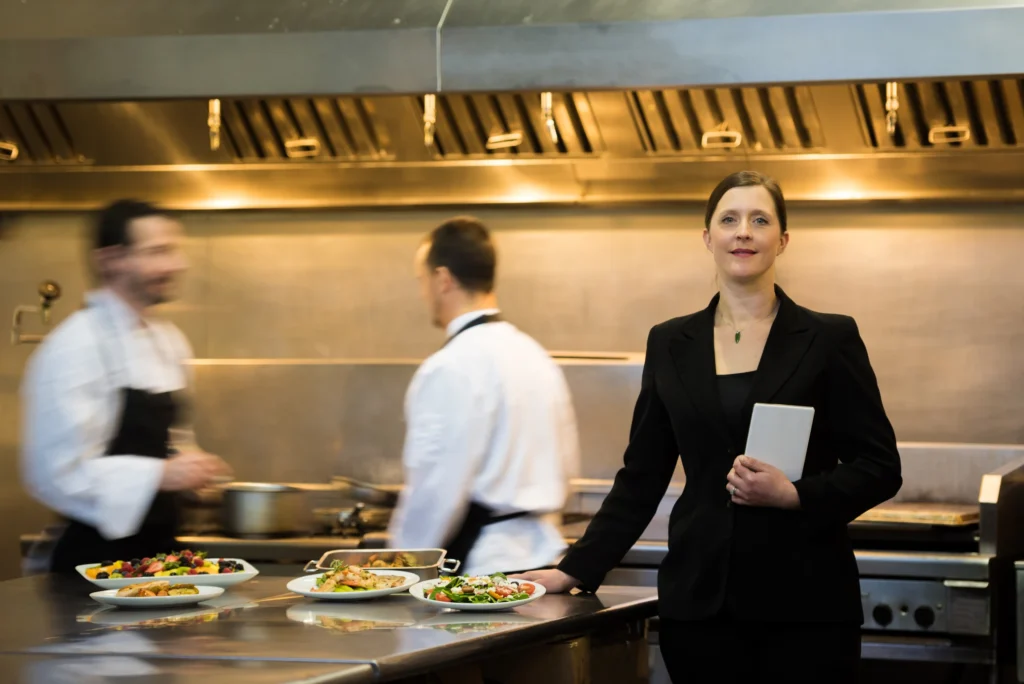
Once you find appropriate space for your business, it’s essential to keep it clean and your employees healthy and content. To do so in a restaurant, you must be very thorough and regular in your commercial kitchen cleaning.
As you know, the cooking process for many foods produces a lot of grease and oil particles, smoke, various vapors and fumes, and overall moisture. When you turn on the exhaust fan, all this shoots up straight through the kitchen hood. Before (hopefully) leaving the building through the ductwork, it goes through the filters, building up residue bit by bit. If the buildup gets too bad, the hood’s ability to ventilate diminishes. Your kitchen, or worse, your customer areas can become fuggy making it unsafe for workers or customers.
Lastly, all the tiny oil particles in a poorly-ventilated kitchen are highly combustible, resulting in a fire hazard. You can only prevent this through routine commercial kitchen exhaust fan cleaning, filter and system cleaning.
Preventing Kitchen Exhaust System Fires
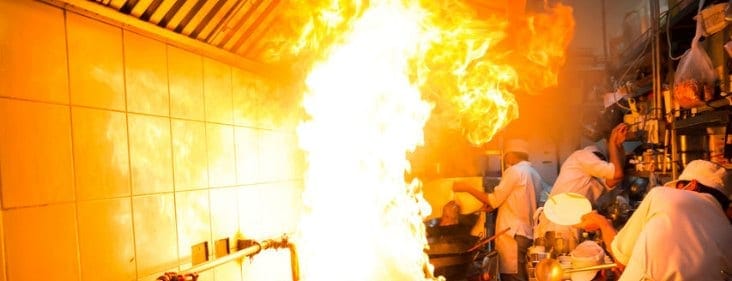
This is a typical sequence of events that often lead to a kitchen exhaust fire when the kitchen hood is not thoroughly and regularly cleaned:
- A tall flame flares up, or the fire starts on the stovetop, usually due to oil.
- Hot air rises, so the flame quickly comes into contact with the filters in the kitchen hood. Due to the buildup of oily residue, they ignite.
- While the exhaust fan is running and moving the hot air, the flames are also drawn upward into the ductwork and the continued flow of air often intensifies the flames.
- If sufficient grease residue exists, within the ducts, due to lack of regular cleaning, it can ignite and act as a continuous fuel source. The fire now has a steady stream of oxygen and a flammable substance all around. The flames can spread through the exhaust system and cause severe damage – which is a risk for the whole property and people inside.
Although it is the most obvious one, commercial kitchen fire safety is not the only reason to have your restaurant’s kitchen hood cleaned on time.
Health Impacts
Our health is our most valuable possession. The maintenance of your restaurant’s kitchen exhaust system affects the air quality in your kitchen and air in the whole building through its ductwork. If the filters become clogged and the ductwork is compromised, contaminated air will circulate in all areas within the building where staff and visitors can breathe it in.
In fact, we have often seen where customers are complaining about the amount of smell or smoke in the eating areas, but the staff is unaware because they have become desensitized to it. At this point for the staff, it has already begun to impact their health. That said, poor air quality is not always instantly recognizable. Usually, it reflects on our health later, after spending a lot of time in a contaminated place.
Fire, bad air quality, and health issues, and poor customer experiences/reviews are the biggest concerns when neglecting the restaurant hood that can and will impact your business.
Additionally, it’s not just the smell or bad reviews, your kitchen exhaust system is a breeding ground for bacteria, mildew, and mold. That’s because of the high volumes of moisture and heat produced by continuous cooking. Routine professional commercial kitchen deep cleaning and restaurant exhaust hood cleaning are crucial to prevent illness and potential mechanical damage.
Understanding Compliance Standards
NFPA96 standards regulate the maintenance and cleaning of commercial cooking equipment, including exhaust and fan systems. If your restaurant violates these regulations, the commercial kitchen will fail inspection.
That can cost you a lot of time and money before you can get back to business. Sometimes it can even put you out of the restaurant business altogether.
Besides, if a fire occurs due to lack of cleaning, your insurance provider may use deny your claim. There is a lot at stake, so remember to put commercial kitchen cleaning and commercial hood cleaning on your timetables and reminder lists.
How often to schedule routine cleanings?
How often you should get a restaurant kitchen hood cleaning depends on the type and volume of cooking in your commercial kitchen. To be sure and feel calm, follow these guidelines, and act accordingly:
- Once a month – for wood and charcoal burning stoves, for all fast-food establishments and 24h restaurants
- Every 3 months– for above-average to high volume restaurants, for 24h schedules, cafeterias and hotel kitchens
- Every 6 months– for pizza bars, restaurants with average volume, for sit down atmosphere
- Once a year– for hoods over non-grease appliances, for restaurants that operate seasonally or occasionally, for those restaurants which produce a really low amount of food
Conclusion
The risks of not doing regular deep cleaning of your commercial kitchen, including the restaurant hood cleaning, or doing it without expert help, are very likely to outweigh any money saved. Whether you need cleaning once a month or once a year – do not hesitate to hire a commercial hood cleaning company and save yourself the trouble. Remember, prevention is the best cure.
Call Cornerstone Commercial Services Today for a Free Onsite Review and Estimate: 1-800-274-3905
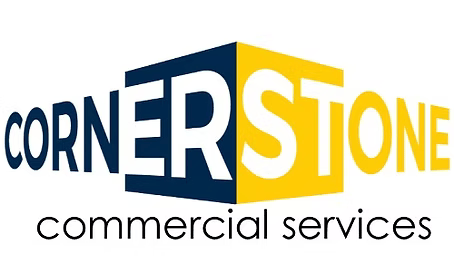
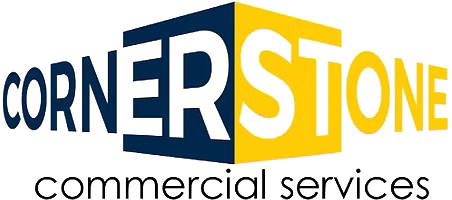



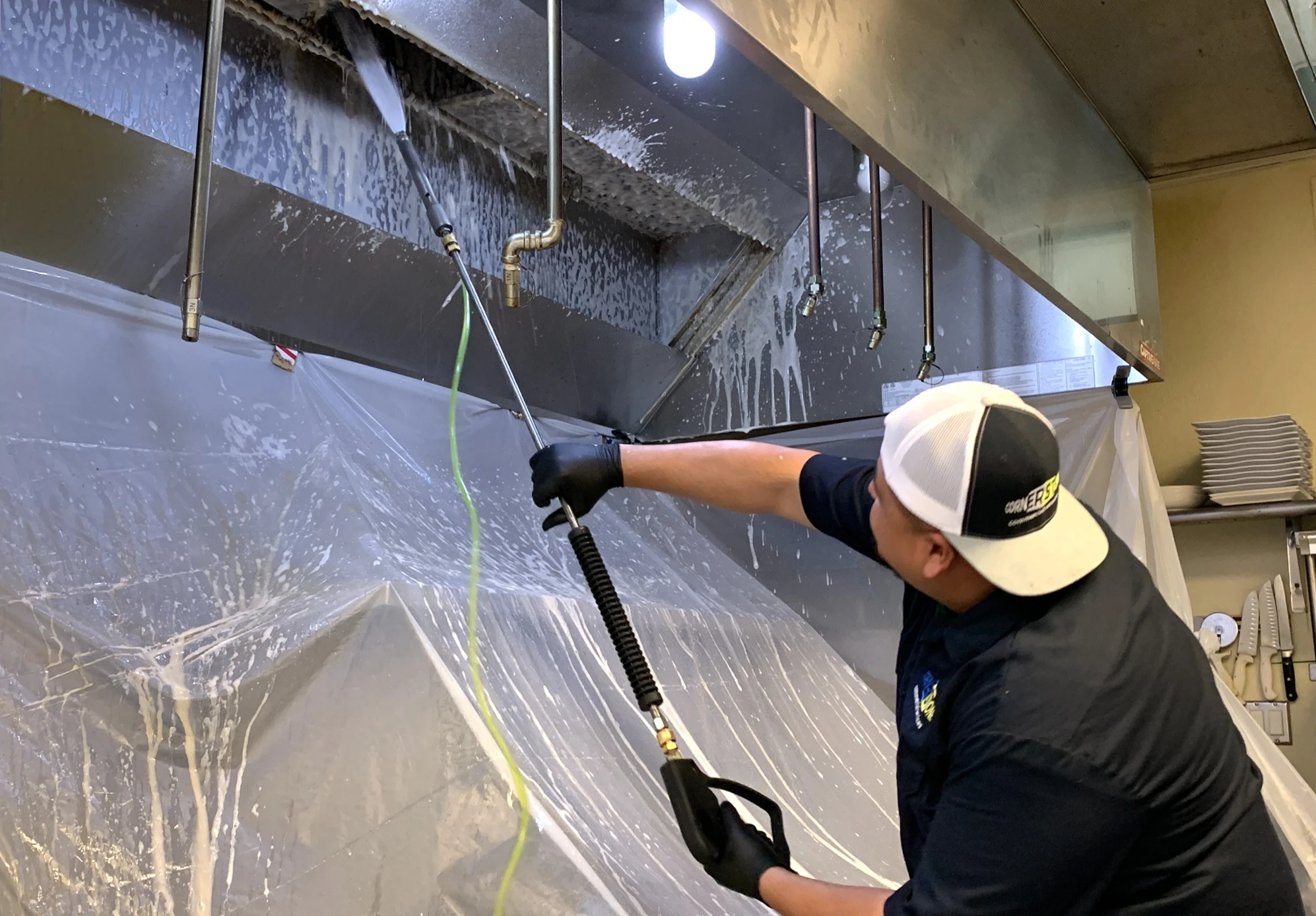
Comments are closed